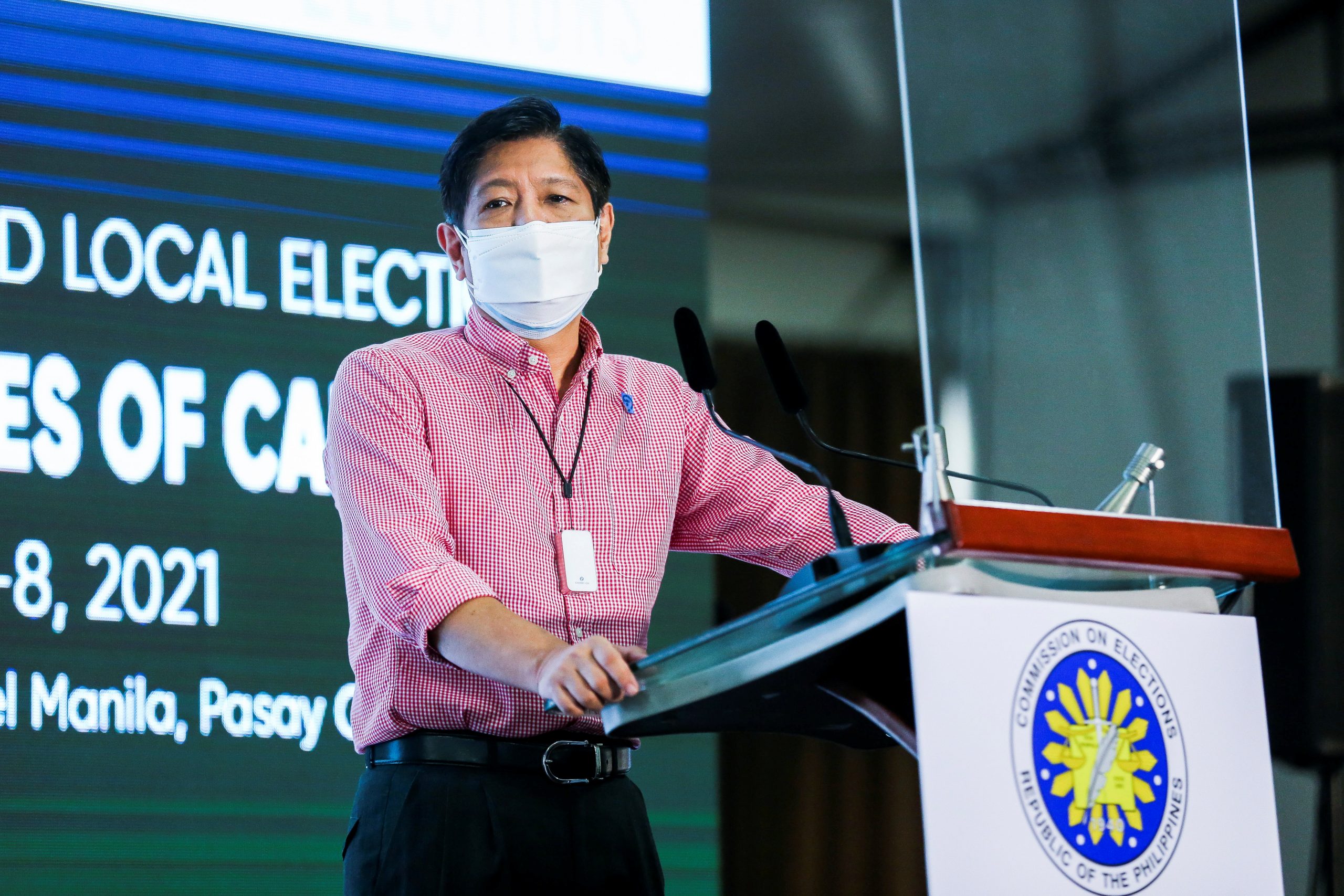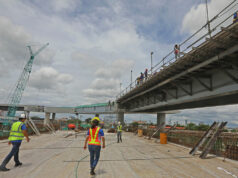Suit to block Marcos presidential run rejected

By John Victor D. Ordoñez
and Kyle Aristophere T. Atienza, Reporter
THE COMMISSION on Elections (Comelec) on Monday rejected one of several lawsuits seeking to bar the only son and namesake of the late dictator Ferdinand E. Marcos from this year’s presidential election.
In a 32-page decision, the election body’s Second Division said Ferdinand “Bongbong” R. Marcos, Jr. did not mislead the public when he said in his certificate of candidacy that he was eligible to run.
“To the best of respondent’s knowledge, what with decades of public service tucked under his belt, he honestly thought or believed that he has never been disqualified from holding public office,” it said in the ruling written by Commissioner Socorro B. Inting.
A group of civil society leaders earlier asked the Comelec to cancel the former senator’s candidacy, saying he was unfit to run for public office after he was convicted of tax evasion in the 1990s.
Marcos’s failure to file his income tax returns is not a crime involving moral turpitude, the election body said, citing the Supreme Court.
“Hence, the petitioners’ contention that the respondent has been convicted of a crime involving moral turpitude is completely false,” it said. “Therefore, when the respondent declared under oath that he is eligible for the position of president, he was telling the truth.”
The ruling allows Mr. Marcos to consolidate, said Julio C. Teehankee, a political science professor at De La Salle University.
“It’s also apparent that it might become a protracted legal battle all the way to the Supreme Court,” he said in a Facebook Messenger chat. “It would be best for those who oppose his candidacy to convincingly beat him with the ballot box instead.”
The Comelec decision was strange and contradictory, said Fides Lim, a spokeswoman for Kapatid, which filed the lawsuit.
She said Mr. Marcos is clearly barred by law from running because he was convicted of tax evasion by a trial court, later upheld by the Court of Appeals.
“These court judgments make him ineligible to hold any public office, least of all the highest office of the land,” she said in a statement. “We cannot have a liar, cheat and convicted tax evader making fools of us all as he claws his way to the presidency while lying through his teeth.”
Kapatid would seek reconsideration of the Comelec order before the en banc, she added.
“We thank the Commission on Elections for upholding the law and the right of every bona fide candidate like Bongbong Marcos to run for public office free from any form of harassment and discrimination,” lawyer and Marcos chief of staff Victor D. Rodriguez said in a statement.
He said they were extending their “hand of unity even to the fiercest of the adversaries” and urged them to help ensure clean, fair and credible elections.
The presidential palace said it respects the Comelec’s decision. “Comelec is an independent constitutional body. We respect the independence of the Comelec,” acting presidential spokesman Karlo Alexei B. Nograles said in a statement.
Senator Panfilo M. Lacson, who is also running for president, said people should respect the Comelec’s decision on the matter.” Our electoral system provides venues to ensure fairness for all concerned, and we should respect them as well,” he said in a statement.
Mr. Marcos held local posts before he was elected as a senator in 2010. In the 2016 elections, he lost to Vice-President Maria Leonor “Leni” G. Robredo by a hair. He is running in tandem with Davao City Mayor and presidential daughter Sara Duterte-Carpio.
BALLOT BOX
There are four more pending election cases against him, Comelec spokesman James B. Jimenez told an online news briefing.
The plaintiffs could go all the way to the Supreme Court but it would be hard to prove that the Comelec had gravely abused its discretion, said Antonio M. La Viña, a constitutional expert and former dean of the Ateneo de Manila University’s School of Government.
“Marcos winning these cases at this level and early in the game is good for the other campaigns,” he said in a Messenger chat. “It tells them to redouble or even quadruple their efforts so that they win over Marcos at the ballot box and not through a judicial decision.”
Mr. Marcos could use his legal win to convince voters that the cases against him were politically motivated, said Jean Encinas-Franco, a political science professor at the University of the Philippines.
On the other hand, his critics could argue that the ruling came from commissioners appointed by President Rodrigo R. Duterte, she said. “Some people who are faithfully paying their taxes might be turned-off that someone they are eyeing for the presidency did not pay his taxes.”
Gerardo V. Eusebio, a campaign strategist and political science professor at La Salle, cited speculations that Mr. Duterte was about to endorse Mr. Marcos’ candidacy.
“Could it be that President Duterte is now endorsing him? I believe that almost if not all of these commissioners in the Comelec were appointed by Mr. Duterte,” he said in a Messenger chat.
The ruling is unlikely to affect Mr. Marcos’ election campaign since his camp had considered the lawsuits “when they plotted the campaign strategy,” said Michael Henry Ll. Yusingco, a research fellow at the Ateneo Policy Center.
“This is the reason why we very rarely see them in mainstream media being interviewed by real journalists,” he said in a Messenger chat. “They aim to project merely an image of him as someone who brings positive vibes so the tandem, hiding from situations where this bubble can be burst by keen journalists.”
“Regardless of his failings in real life, their campaign will stick to its pre-determined and polished messaging,” Mr. Yusingco said. “They will likely push for the same in social media more than in mainstream media.”
“The Marcos-Duterte tandem will simply continue its insulated and tightly controlled campaign because it has done wonders for them so far,” he added.



